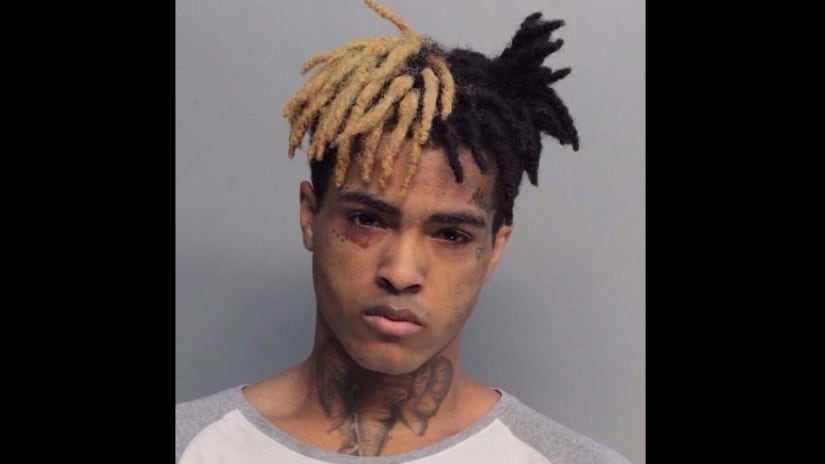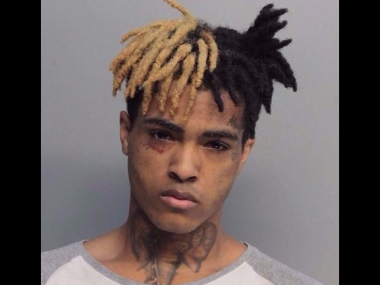Barely a fortnight before he was shot dead , rapper XXXTentacion’s music was reinstated on online music streaming service Spotify. On 1 June 2018, Spotify added his song “SAD!” from the March 2018 released album ?, back to its RapCaviar playlist after much outcry from his fans and industry colleagues. His untimely, tragic death on 18 June saw an outpouring of tributes from fans and peers, and a fair share of backlash for what now seems opportunistic for Spotify. In the streaming service’s defence, the song was reinstated 17 days before XXXTentacion’s demise, but the optics of the move have done little to assuage his sentimental fans, who accuse the service of cashing in on his death and not giving him his due when he was alive. Spotify’s Rap Caviar playlist is among its most influential. Given that Spotify serves both as a curator of music and a retailer of songs and albums, thousands of casual and discerning listeners turn to its playlists as a source of music and in some cases, forming musical opinion. Nevertheless, even as Spotify battles the backlash from XXXTentacion’s fans, there is no denying that his death — as is the case with most musicians — has seen a surge in the artist’s music catalogue sales on both Amazon and Apple Music. TMZ reports that within hours of him being gunned down, XXXTentacion’s albums ? and 17 held the No. 1 and No. 2 slots respectively on Amazon’s Movers and Shakers Digital Music list. The rapper’s latest album ? saw a 41,306 percent spike in digital sales, whereas his debut project 17 is nearly up by 9,000 percent in digital sales. According to TMZ, “…the success isn’t limited to digital music. XXX is garnering plenty of attention in the CDs and vinyl category too. He holds the no. 2 and 3 spots with the LP of ? jumping a staggering 542,566 percent and the CD ? seeing a 54,057 percent spike in sales.” [caption id=“attachment_4555261” align=“alignnone” width=“825”]  Barely a fortnight before he was shot dead, rapper XXXTentacion’s music was reinstated on online music streaming service Spotify. Image via Facebook[/caption] This phenomenon is hardly unique to XXXTentacion. Repeatedly over the years, the death of a popular musician has seen a massive spike in album sales via CDs and vinyls, as well as through digital platforms. One day after he died on 10 January 2016, David Bowie’s album Blackstar topped the iTunes’ sales chart. The album that was released only two days prior to his death held the top spot while on No. 2 was another Bowie album, a greatest hits compilation titled Best of Bowie. Interestingly, holding 4th spot was The Rise and Fall of Ziggy Stardust and The Spiders From Mars while Hunky Dory was at No. 6. They were followed by The Best of David Bowie 1969/1974 at No. 11 and Let’s Dance at No. 12. Reuters reported, “Streaming giant Spotify said streams of Bowie’s music were up 2,700 percent on Monday (11 January), while the Official Charts Company in the UK said Bowie’s Blackstar album was headed to the top spot on the charts with sales of 43,000 since its Friday release.” That Blackstar would top the charts was predictable not just because of the circumstances but because of Bowie’s immense talent. However, seeing albums that have been released decades ago on the charts is indicative of not just a listener’s interest, but also the astuteness with which streaming sites and labels position such works. In the 2014 study “Death-Related Publicity as Informational Advertising: Evidence from the Music Industry” by Leif Brandes (University of Warwick), Egon P Franck (University of Zurich) and Stephan Nuesch (University of Muenster), it was reported: “In our main study, we use official weekly US sales data for 446 music albums of 77 artists who died in the years 1992-2010. A series of regression models show that an artist’s album sales increase on average by 54.1 percent after death, and that the relative increase in sales after death is higher for the better albums of the artist even when controlling for differences in weekly album-level publicity. This suggests that death-related publicity serves primarily as informational advertising that attracts new customers who buy the artist’s best albums after death.” Also read — How XXXTentacion's rage-filled music describes the modern American landscape of a lost, broken generation We’ve seen this in the case of so many musicians in the past: Michael Jackson, Amy Winehouse, Scott Weiland, Prince, George Michael, Leonard Cohen, Chris Cornell, Chester Bennington, the list is endless. In fact, seven out of 11 of Tupac Shakur’s platinum albums have been released posthumously. Industry observers look at this resurgence of interest through the prisms of new-found curiosity and nostalgia. New listeners are drawn to the life and times of the deceased musician and are more inclined to buy music they hadn’t listened to when the concerned artist was alive. Without making this an argument of pre- and post-millennial tendencies, this is quite simply a case of being driven by a strong sense of FOMO. However, consumers familiar with the musician are also driven by overwhelming nostalgia to buy what would be their own personal favourite album of the artist as a kind of emotional connect with the musician. Consumer behaviour, as examined in the 2014 study, also highlights how the death of a celebrity often makes people reflect on their own mortality. Seeking answers in the works of these artists often leads the introspective consumer to pick an album that resonates with their state of mind. In its inadvertent timing of reintroducing listeners to XXXTentacion’s works, Spotify has found itself in a business-rich situation not entirely of its own making. In May 2018, Spotify had announced that the music of XXXTentacion and R Kelly would be removed from its editorial and algorithmic playlists as part of a new hate content and hateful conduct policy. While the rapper had been charged with physically abusing a pregnant woman, false imprisonment and witness tampering, the removal of his music from Spotify’s playlists received much backlash from several quarters. This rankled with his fans as Spotify continued to host on its playlist Famous Dex, who was caught on camera assaulting his girlfriend, and Young Boy Never Broke Again, who was charged with attempted murder in 2016 and arrested this year for kidnapping, assault, and weapons violations. Kendrick Lamar weighed in that this policy would effectively single out artists of colour and the CEO of Top Dawg Entertainment Anthony “Top Dawg” Tiffith had reportedly threatened to remove his music from the service, before Spotify reverted to playing XXXTentacion’s music. In his short life, the highly controversial 20-year-old rapper wrote about mental health, loneliness, depression, and anxiety. In his death, he joins a pantheon of musical legends before him who live on through their music. Whether or not the lease of life his career has gotten with his death is short-lived, only time will tell.
In his short life, the highly controversial 20-year-old rapper XXXTentacion wrote about mental health, loneliness, depression, and anxiety. In his death, he joins a pantheon of musical legends before him who live on through their music. Whether or not the lease of life his career has gotten with his death is short-lived, only time will tell.
Advertisement
End of Article


)
)
)
)
)
)
)
)
)



